- News
- Reviews
- Bikes
- Accessories
- Accessories - misc
- Computer mounts
- Bags
- Bar ends
- Bike bags & cases
- Bottle cages
- Bottles
- Cameras
- Car racks
- Child seats
- Computers
- Glasses
- GPS units
- Helmets
- Lights - front
- Lights - rear
- Lights - sets
- Locks
- Mirrors
- Mudguards
- Racks
- Pumps & CO2 inflators
- Puncture kits
- Reflectives
- Smart watches
- Stands and racks
- Trailers
- Clothing
- Components
- Bar tape & grips
- Bottom brackets
- Brake & gear cables
- Brake & STI levers
- Brake pads & spares
- Brakes
- Cassettes & freewheels
- Chains
- Chainsets & chainrings
- Derailleurs - front
- Derailleurs - rear
- Forks
- Gear levers & shifters
- Groupsets
- Handlebars & extensions
- Headsets
- Hubs
- Inner tubes
- Pedals
- Quick releases & skewers
- Saddles
- Seatposts
- Stems
- Wheels
- Tyres
- Health, fitness and nutrition
- Tools and workshop
- Miscellaneous
- Buyers Guides
- Features
- Forum
- Recommends
- Podcast
review
£2,550.00
VERDICT:
Puts a smile on your face that's hard to shift, whether you're winning or not
Weight:
9,450g
Contact:
At road.cc every product is thoroughly tested for as long as it takes to get a proper insight into how well it works. Our reviewers are experienced cyclists that we trust to be objective. While we strive to ensure that opinions expressed are backed up by facts, reviews are by their nature an informed opinion, not a definitive verdict. We don't intentionally try to break anything (except locks) but we do try to look for weak points in any design. The overall score is not just an average of the other scores: it reflects both a product's function and value – with value determined by how a product compares with items of similar spec, quality, and price.
What the road.cc scores meanGood scores are more common than bad, because fortunately good products are more common than bad.
- Exceptional
- Excellent
- Very Good
- Good
- Quite good
- Average
- Not so good
- Poor
- Bad
- Appalling
Ritchey's Swiss Cross Disc isn't the lightest bike to tackle a cyclo-cross race on, but if enjoying the experience is as important – if not more so – than getting onto the podium, then it's well worth considering.
With low overall weight being a strong factor in a sport that demands lots of changes in pace during the course of one lap, you'd be forgiven for wondering whether carbon offerings from the likes of Trek, Specialized and Merida have sounded the death knell for artisan steel frames like this.
> Email ri_sales [at] ritcheylogic.com (Email) to find your nearest dealer
Ritchey obviously doesn't think so, as the Swiss Cross is aimed squarely at the racer rather than being one of the more 'crossover' styles – Ritchey's own Outback adventure/gravel bike has that role covered. That said, while it is available in a wide range of specs, the one here is more inclusive, with a 50/34 compact double chainset. More experienced riders might prefer to change this for a single-ring setup – and cantilever brakes instead of discs – to save a bit of weight.
Ride and performance
Despite my initial misgivings that this was going to feel outmoded and a bike for participating on rather than winning, I was wrong. Looking at similarly priced carbon rivals tested on road.cc, it's around 12 per cent heavier, yet for the majority of the time, on all but the most technical and muddy courses with lots of starts and stops to contend with, you don't feel that extra weight.
Ramp dismounts were the only time when I really wished the bike weighed less, as it was a bit more unwieldy to shoulder than some lighter bikes I've ridden.
Whether you need it to be as quick – ie, as light – as carbon depends on your aspirations, really.
It's certainly the best steel cyclo-cross bike I've ridden and probably more fun to learn and develop your cyclo-cross skills on than less forgiving aluminium or carbon options. The spec tested here, including a double chainring and wider gear range than a typical cross setup, will suit beginners and maybe those wanting to get back to the sport after a layoff. While for simplicity's sake I would choose the single chainset option, I am sure the versatile 50/34t double will have more takers.
It might be a cliché to say that you have to ride one to know, but this is steel at its very best. Ritchey calls it 'Force Directional tubing' – I call it being shoved from behind. It seems to defy the weighing scales by feeling lighter than it is, to the point that I found myself looking down at the chainring on climbs and realising I was still on the 50t big chainring.
The riding position, aided by the superb Ritchey EvoMax WCS compact bar, is neither too high nor too low, and I found myself using the tops and drops in equal measure. It's refreshing to see a nice curved drop rather than an ergonomic one; I like the more linear range of grip rather than an ergo's two distinct points of grip. Our 55cm bike had a 44cm wide bar while the two smaller size bikes have a 42cm bar. I would have preferred a narrower bar, as it's rather too easy to clash with other riders going into the first corner of a race, and even easier to bash trees on tight courses. I'm assured by the distributor that bars can be swapped out at dealer level.
Ritchey has eschewed the trend for a thru-axle fork, but the steering is welcomingly agile at cyclo-cross pace and this doesn't change when jamming along to make up time on flat tarmac sections where, although it can feel a little twitchy, it doesn't actually undermine rider confidence.
The frame
More than 20 years ago, if you were to turn up on the start of a race with a Ritchey cyclo-cross bike, you'd be asked which pro rider you'd bought it from, such was their cost and rarity. Tom Ritchey – nicknamed 'senior slayer' during his time as a junior champion road racer – has resisted the temptation to sell out to some giant conglomerate after 30 years in the business and is directly involved in the process of design and production, from specifying the triple butted tubing through to painting the frames (there are several options, including the classic design seen here).
The Ritchey tubing has a butting configuration – thinner where it can be to save weight – which defines the ride quality. It's less spring-like in behaviour than a titanium frame yet there's a liveliness in handling that many older cyclists talk about in tones of hushed reverence.
Ritchey has done well to pare the frame weight down to just 1.9kg (55cm) – which is remarkable for a steel 'crosser with disc brake mounting, although the full-carbon (including steerer) fork is very welcome, given that the frame weighs almost twice that of the lightest carbon frames available.
The long cable stops mean you can choose a disc brake setup or traditional cantilevers, which still have a great many followers in the sport. I really like the Shimano disc brakes. Point the Ritchey down a long, fast descent and take a big handful of brake and despite the keen steering responses you'll never feel like the tyre is going to break away; you just get linear, progressive braking that requires less pull at the lever than the best traditional calliper setups have to offer.
Depending on your point of view, the bell-shaped forged head tube lugs are either a throwback to the pre-war years or innovative engineering; Ritchey says it's 'lighter and stronger than a standard head tube'.
There really are some interesting engineering details in this frame, such as the left seatstay, designed with a wave to provide clearance for the rear brake setup; and far from just being a bent tube it looks good from all angles. Another is where Ritchey, rather than use a simple aluminium c-clamp for the seatpost, has 'shot-in' the stays to provide an integrated seat tube clamp which looks neat and purposeful.
The powder coated finish is tough and adds to the overall premium quality feel of the bike.
Wheels and tyres
Ritchey Zeta WCS Disc wheels sport traditional elbowed spokes and semi-deep-section rims. It's great to see spokes with elbows as they speed up wheel truing, and because the flanges are narrower than a straight pull wheel they are less likely to fling mud onto bike and rider. The Center Lock rotor mounts don't appear to collect too much mud either.
V-section rims such as the Zetas are known to reduce the amount of mud that gets flung around in the heat of competition, and the internal profile is designed specifically to speed up the seating of tubeless tyres.
Ritchey's cartridge bearing hubs have been around for almost 20 years so I don't doubt the reliability of this version, which uses oversized bearings.
The 35mm Ritchey Shield Comp tubeless tyres work well but it's crucial to experiment with the pressure before the start of a race. Get it right and you'll be rewarded with a smooth, fast ride. I seemed to find it easier than most to gauge the point on each lap where the tread started to break away on the damp grass, probably aided by a soft compound.
On the tarmac sections these grip far better than a 'cross tyre has a right to; the tread hooks up superbly on shale and dry hardpack. But show them deep mud and your pace falls away as the wide carcass lacks the ability to fully cut through to the hard underlayer, but its advantages largely outweigh this.
Gears and finishing kit
I've used single chainrings extensively for racing and can't help feeling that the Ritchey's double just adds unwanted complication and weight that it could well do without. The 50/34 combination is on the tall side for cyclo-cross, but as I've said I'm sure it will appeal to many.
There's certainly no criticism in terms of performance. Shifts from small to large chainring and back again were always snappy and precise even under pressure, which is testament to the stellar refinement of this Ultegra groupset, while the 11-28 cassette has evenly spread steps between the sprockets.
Like some kind of aural indicator, the gears 'pop' into the next largest sprocket easily when climbing, which is a real bonus on washboard surfaces where a shift on other systems can sometimes be hard to define.
Another bonus on washboard surfaces is the Ritchey Streem saddle; it's so comfortable I didn't notice it, though of course it won't be for everyone.
Conclusion
This elder statesman of cyclo-cross could have been forced to abdicate in the harsh light of today's marketplace, but thanks to a steady stream of developments, one of cycling's true thoroughbreds is still a viable option for those with real world aspirations.
> Cyclo-cross vs gravel/adventure bikes – what's the difference?
If you are set on gaining league points there are lighter rides out there, but I feel that the Ritchey ownership comes with an attached conviction to keep racing long after the young guns have retired and hung up their racing wheels, and that goes a long way to justifying the high price.
Verdict
Puts a smile on your face that's hard to shift, whether you're winning or not
If you're thinking of buying this product using a cashback deal why not use the road.cc Top Cashback page and get some top cashback while helping to support your favourite independent cycling website
road.cc test report
Make and model: Ritchey Swiss Cross Disc
Size tested: 56cm
About the bike
State the frame and fork material and method of construction. List the components used to build up the bike.
Frame Ritchey SwissCross Disc
Fork Ritchey Cross WCS Carbon
Headset Ritchey WCS Drop In 1-1/8"
Rear Derailleur Shimano Ultegra 11s
Front Derailleur Shimano Ultegra 2s
Shifters Shimano RS685 Hydraulic Disc
Brakes Shimano RS785 Hydraulic Disc
Rotors Shimano RT99-S 160mm
Crankset Shimano Ultegra 50/34 – 170mm (49/51cm),172.5mm (53/55cm), 175mm (57/59cm)
BB-Set Shimano Ultegra BBR60 (BSA)
Handlebar Ritchey EvoMax WCS Blatte – 42cm (49/51cm), 44cm (53/55cm), 46cm (57/59cm)
Bar Tape Ritchey Cork Black
Stem Ritchey C-220 WCS Blatte – 80mm (49/51cm), 90mm (53cm), 100mm (55cm), 110mm (57/59cm)
Seatpost Ritchey Link WCS 350x27.2mm Blatte
Saddle Ritchey Streem WCS Black
Wheelset Ritchey Zeta Disc WCS
Chain Shimano Ultegra HG700 11s
Cassette Shimano CS-5800 11s 11/28T
Tires Ritchey Shield 700x35 Comp foldable
Tell us what the bike is for, and who it's aimed at. What do the manufacturers say about it? How does that compare to your own feelings about the bike?
On Ritchey's website it says: "The Swiss Cross Disc blends our cyclo-cross racing heritage with up-to-date geometry and tubing, and as always, the sweet, perfectly balanced ride that Ritchey is known for."
I agree with the term 'sweet', as the Swiss Cross has a real grin factor attached to it, more so than some of the starkly efficient carbon and aluminium offerings. It's perfect for tough events like the classic Three Peaks, and for the rider who values honest old school qualities and heritage over cutting edge modernity.
Frame and fork
Overall rating for frame and fork
9/10
Tell us about the build quality and finish of the frame and fork?
The frame and fork are of exemplary build quality and finish.
Tell us about the materials used in the frame and fork?
Ritchey chromoly triple butted oversized steel tubing and 100% carbon fork.
Tell us about the geometry of the frame and fork?
72° head and 73.5° seat angles are industry standard geometry for a cyclo-cross frame in this size.
How was the bike in terms of height and reach? How did it compare to other bikes of the same stated size?
The 10cm stem could be a little on the short side for some but the dealer network will make changes for individual customers.
Riding the bike
Was the bike comfortable to ride? Tell us how you felt about the ride quality.
Typical steel – fun and lively to ride and distinctly different to carbon fibre or aluminium.
Did the bike feel stiff in the right places? Did any part of the bike feel too stiff or too flexible?
A perfect balance of fore and aft stiffness and great resistance to lateral forces when climbing.
How did the bike transfer power? Did it feel efficient?
Great power transfer – sublime effect on climbs.
Was there any toe-clip overlap with the front wheel? If so, was it a problem?
No toe overlap.
How would you describe the steering? Was it lively, neutral or unresponsive? On the faster side of neutral, very willing to make sudden direction changes.
Tell us some more about the handling. How did the bike feel overall? Did it do particular things well or badly?
The handling is as close to perfect as I've known.
Which components had the most effect (good or bad) on the bike's comfort? would you recommend any changes?
The saddle is among the best I've tried in 20 years of cycling.
Which components had the most effect (good or bad) on the bike's stiffness? would you recommend any changes?
The fork resists twisting forces very well.
Which components had the most effect (good or bad) on the bike's efficiency? would you recommend any changes?
The Shimano gears' ease of use had the greatest effect on my overall impression of the bike's efficiency. I would probably swap out the double chainset for a single and fit cantilever brakes to save weight; as good as they are, I'd only use the disc brakes for events like the Three Peaks race where they would present an advantage in foul weather conditions.
Rate the bike for efficiency of power transfer:
8/10
The Ritchey seems to defy its weight by being a great climber.
Rate the bike for acceleration:
7/10
Not as good as some of the carbon bikes out there for the same money.
Rate the bike for sprinting:
8/10
There's some compliance in there which curiously aids grip when sprinting for the line over damp, rough surfaces.
Rate the bike for high speed stability:
8/10
Feels nervous at speed but is actually very stable.
Rate the bike for cruising speed stability:
8/10
You don't cruise on a bike specifically intended for racing...
Rate the bike for low speed stability:
10/10
Unflappable, even at less than walking pace.
Rate the bike for flat cornering:
9/10
Exemplary cornering control and grip.
Rate the bike for cornering on descents:
9/10
Sensitive steering yet stable at speed.
Rate the bike for climbing:
9/10
Feels faster than it probably is.
The drivetrain
Rate the drivetrain for performance:
9/10
Rate the drivetrain for durability:
9/10
Rate the drivetrain for weight:
8/10
I would swap out the double chainset for a single and ditch the front mech.
Rate the drivetrain for value:
7/10
Tell us some more about the drivetrain. Anything you particularly did or didn't like? Any components which didn't work well together?
Pretty much a perfect drivetrain from a functionality point of view.
Wheels and tyres
Rate the wheels for performance:
8/10
Rate the wheels for durability:
7/10
Rate the wheels for weight:
8/10
Fast wheels – I love them.
Rate the wheels for comfort:
7/10
Rate the wheels for value:
7/10
Tell us some more about the wheels.Did they work well in the conditions you encountered? Would you change the wheels? If so, what for?
Cross wheels should fend off mud and they do.
Rate the tyres for performance:
8/10
Outstanding in all but deep mud.
Rate the tyres for durability:
7/10
Rate the tyres for weight:
7/10
Rate the tyres for comfort:
7/10
Rate the tyres for value:
7/10
£60 a pair isn't cheap, but they're worth it.
Tell us some more about the tyres. Did they work well in the conditions you encountered? Would you change the tyres? If so, what for?
I've encountered three or four races out of about 20 where this tyre would disappoint – in deep wet mud – but in every other respect they are outstanding.
Controls
Rate the controls for performance:
8/10
Always convenient whether your hands are on the tops or on the drops.
Rate the controls for durability:
8/10
Shimano has a great reliability record.
Rate the controls for weight:
8/10
Rate the controls for comfort:
9/10
Wonderful.
Rate the controls for value:
9/10
Benchmark performance + great value.
Your summary
Did you enjoy riding the bike? Yes, very much.
Would you consider buying the bike? Yes, but as a frame and fork. I love the heritage and the fact that it's tougher than carbon.
Would you recommend the bike to a friend? Yes
Rate the bike overall for performance:
8/10
Rate the bike overall for value:
8/10
Use this box to explain your score
If 'performance' is getting from a-b as quickly as possible then this scores a 7, but if it relates to the smile on your face then it's a 9.
About the tester
Age: 54
I usually ride: Fondriest Domino carbon 55cm My best bike is: Vincenti Dabitur track bike
I've been riding for: Over 20 years I ride: Most days I would class myself as: Expert
I regularly do the following types of riding: road racing, time trialling, cyclo-cross, commuting, sportives, fixed/singlespeed, track
Latest Comments
- Smoggysteve 0 sec ago
Sorry, I don't buy the argument about large cars. I drive an Audi Q5, a car I bought purely due to my partner having a disability. It's easy to...
- perce 14 min ago
Aw bless. My wife and I usually go to our local M&S cafe once a week for a bite to eat, usually Wednesday but sometimes Thursday. I usually...
- Exup 1 hour 29 min ago
At least some justice is being done........
- BIRMINGHAMisaDUMP 1 hour 39 min ago
I imagine the Police treat bike theft as an insurance issue rather than a criminal issue. Can't blame them to be honest. The best thing is to use...
- David9694 2 hours 6 min ago
Police launch investigation into destruction of barber shop in Hythe High Street...
- barbarus 10 hours 8 min ago
I live right in the centre of this. It's really heartening to read that there are people in favour....
- ktache 10 hours 36 min ago
I'd love for them to put a number on that "inappropriate speed"
- Nick T 11 hours 29 min ago
They need to use some harder material for the cleat retention clip really, that's worn out long before any bearing has had a chance to fail on...
- yiipeeia 14 hours 19 min ago
I am 67 and I cycle with two groups during the year The Haddenham Easyriders International who ride during the summer on Thursday evenings, and The...
- don simon fbpe 14 hours 30 min ago
Brexit is a wholly selfish act....




































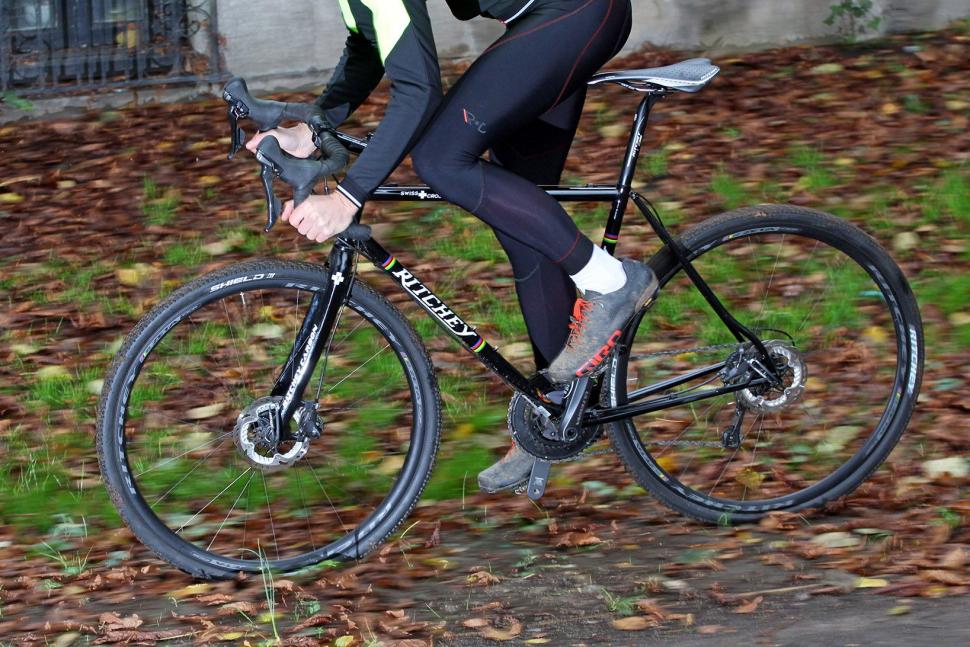
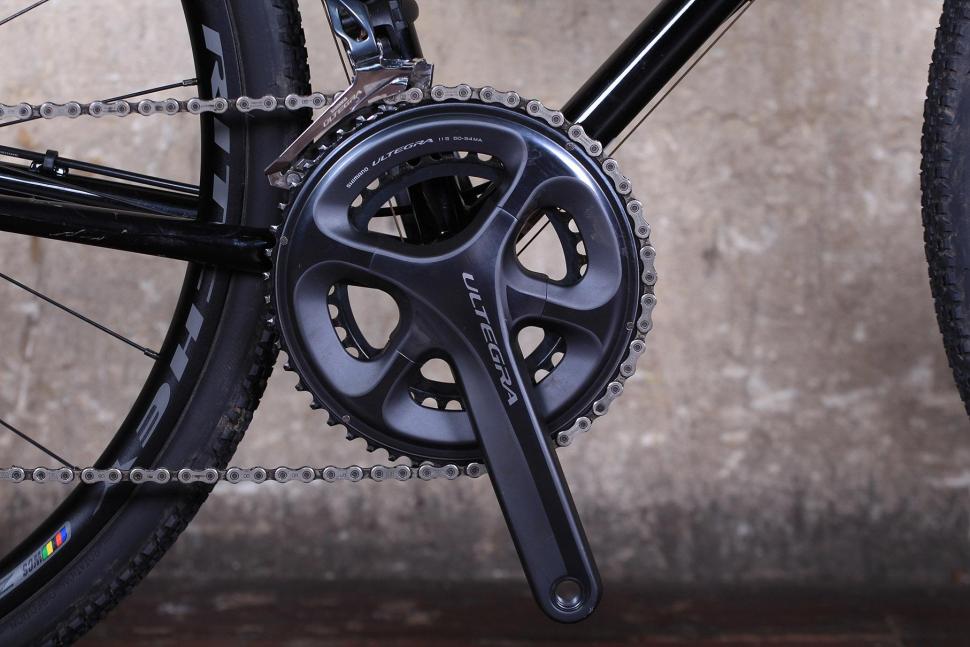

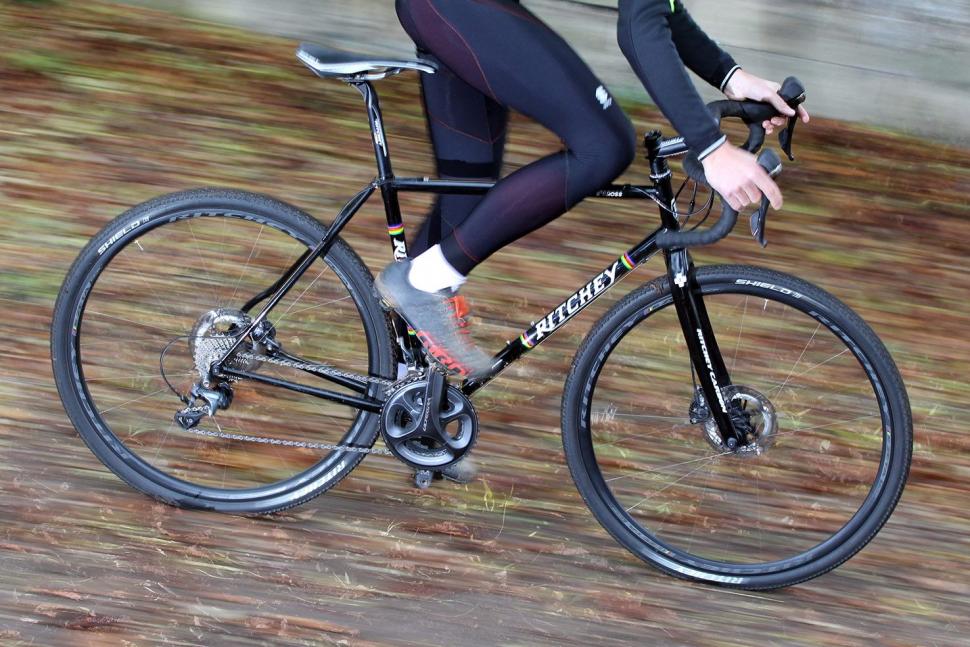
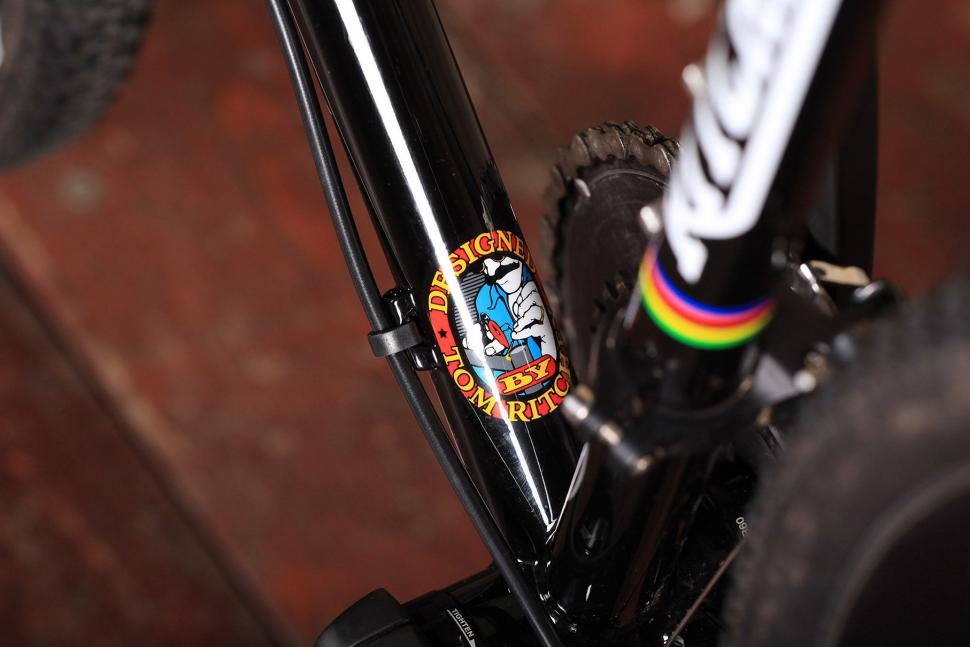
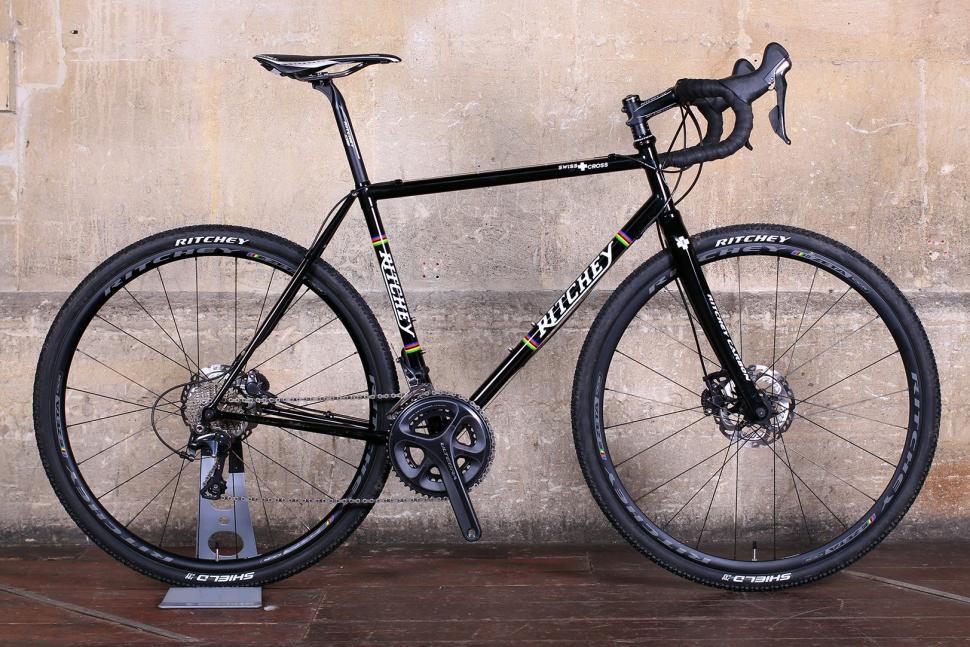

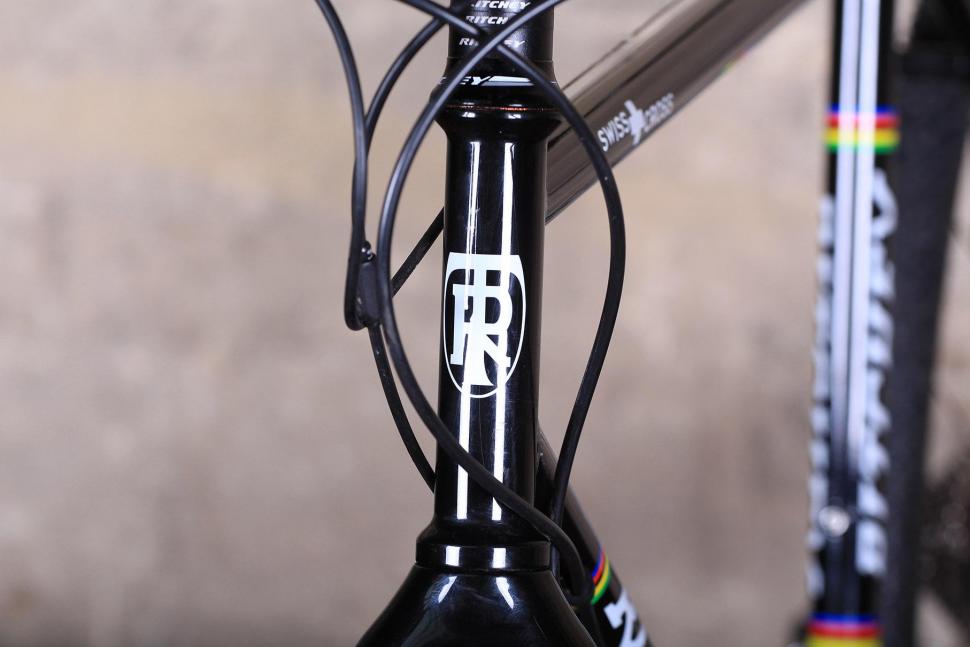



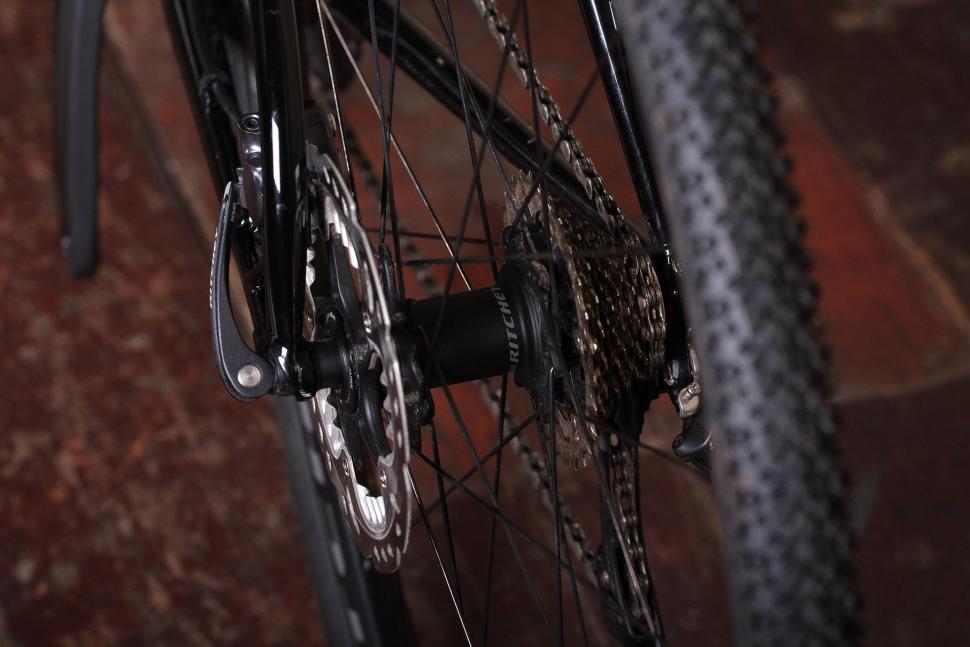
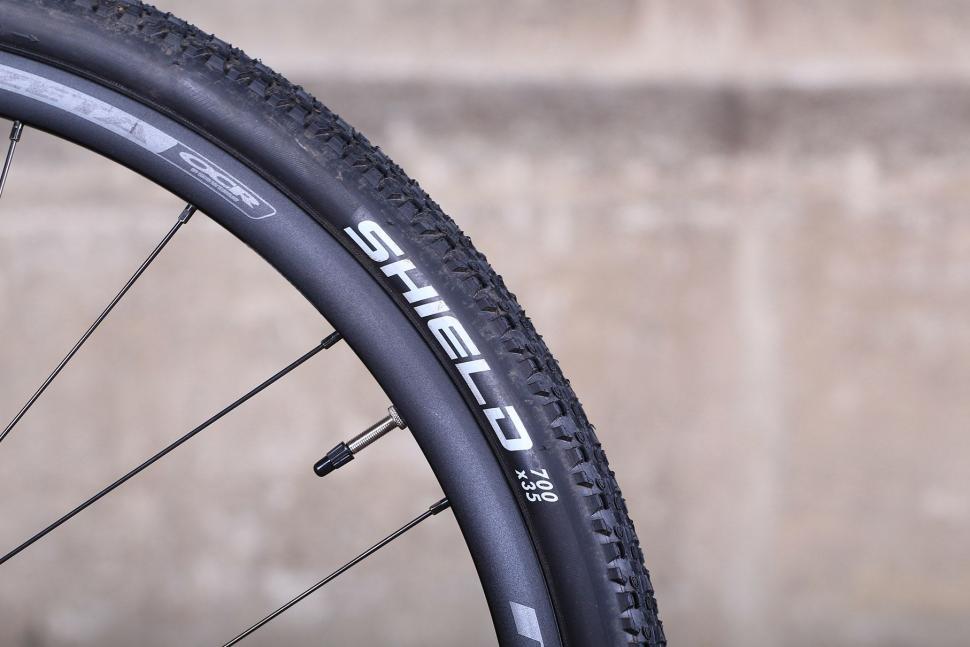

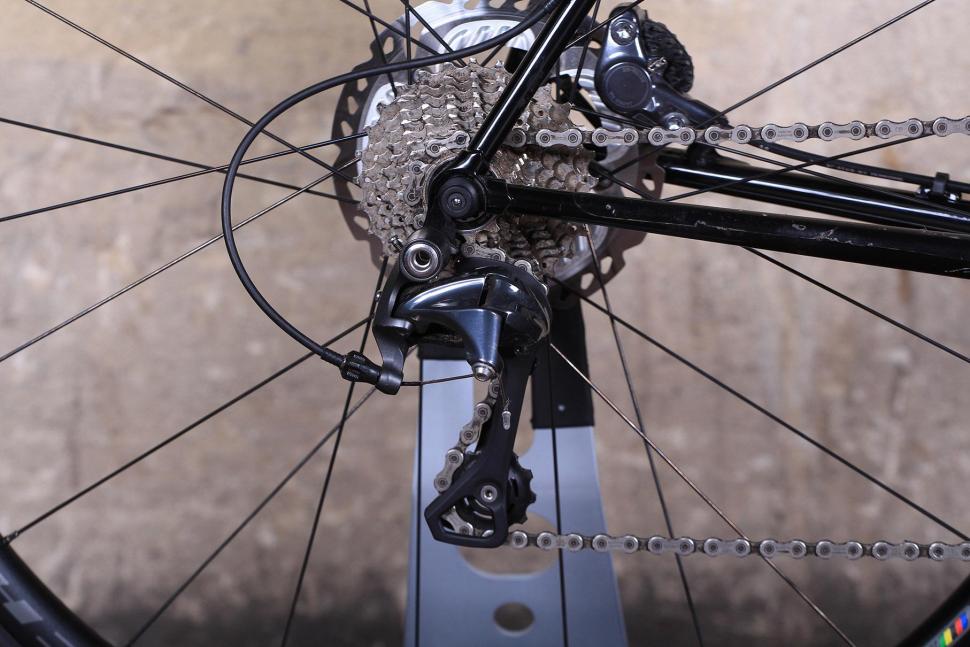
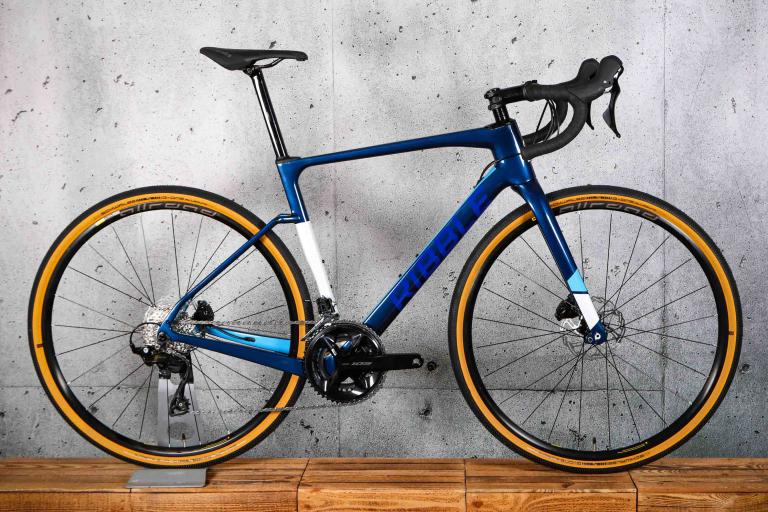
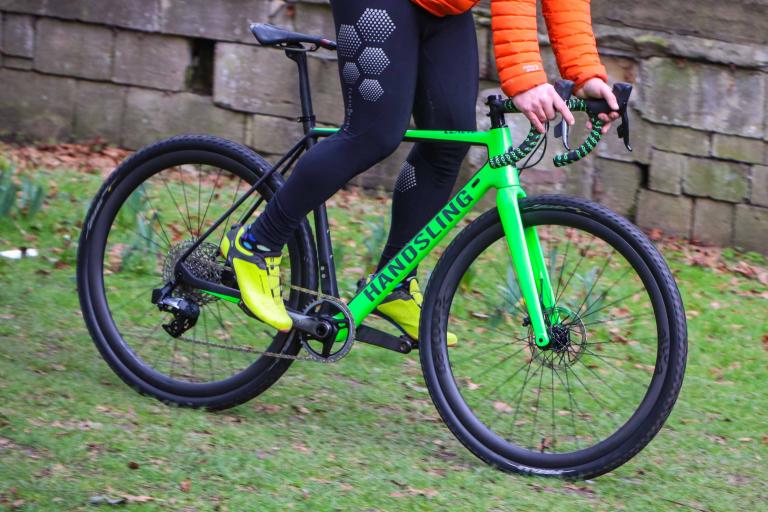
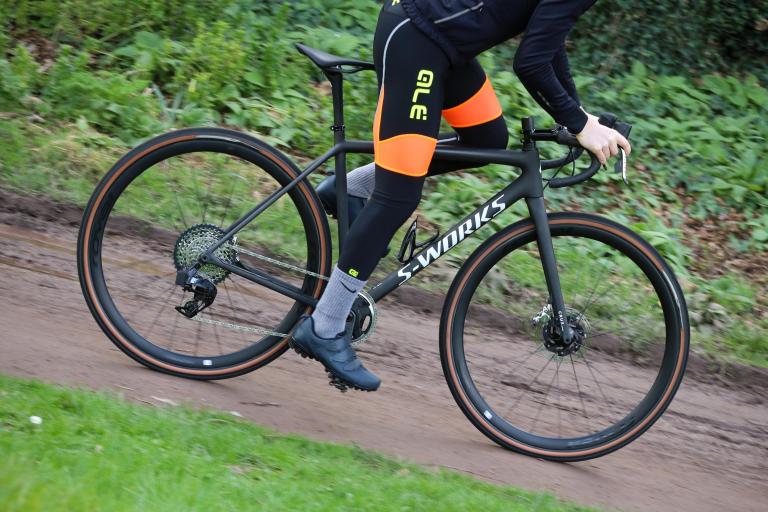
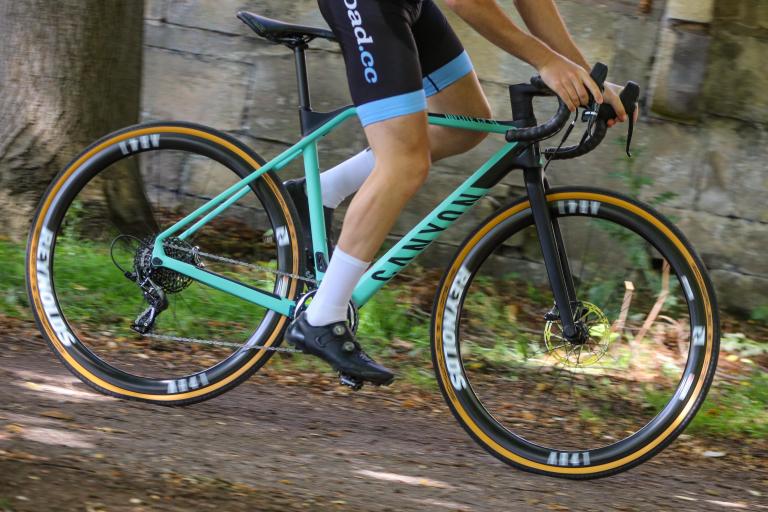
Add new comment
1 comments
Lovely bike - if it took guards it would make a brilliant winter commuter and training bike.